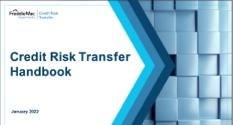Understanding Mortgage-Backed Securities
Banks, lenders and other financial institutions offer mortgages to qualified homebuyers to finance the purchase of single-family homes. These loans can have fixed or adjustable rates and vary in terms of the total amount borrowed, interest rates and other elements based on the property’s location and type, the homebuyer's credit rating and certain additional criteria. These transactions occur in what is known as the primary mortgage market.
However, to maintain liquidity on their balance sheets, many financial institutions choose to participate in the secondary mortgage market. It’s here where financial institutions can deliver their mortgage loans to Freddie Mac in exchange for cash or mortgage-backed securities. As a secondary market participant, Freddie Mac does not lend directly to homebuyers. Rather, we purchase qualifying mortgage loans from financial institutions to provide liquidity, stability and affordability to the nation’s housing market. Financial institutions use the proceeds from these sales to make additional loans and extend liquidity to prospective homebuyers.
Our participation in the secondary mortgage market ensures mortgage credit remains available for homebuyers, lowers borrowing costs and expands access to homeownership. We actively reduce risk for taxpayers by transferring a portion of our mortgage credit risk exposure to third party investors through our credit risk transfer programs.

What Is a Mortgage-Backed security?
To further our ability to buy new loans from financial institutions, we bundle thousands of similar mortgage loans together into a single package, known as a mortgage-backed security (MBS), through a process known as securitization. This process transforms mortgages into tradable securities, which can be bought and sold by investors.
How Mortgage-Backed Securities Are Created and Sold
Mortgage Loan Origination
Mortgage loans are originated by financial institutions to individuals purchasing loans.
Loan Sale
Financial institutions sell mortgage loans to Freddie Mac, in exchange for cash or mortgage-backed securities.
Loan Pooling
Freddie Mac pools purchased loans together based on similar features and characteristics.
Securitization
Freddie Mac converts the pool of mortgage loans into a security that can be sold to investors. We guarantee payment of principal and interest on the security.
Sale to Investors
Freddie Mac sells the security to investors in exchange for cash.
How Freddie Mac Structures Its Securities
Pass-Through Securities
Pass-through securities, also known as single-class securities, pass the principal and interest payments from the mortgage pool to investors. These payments are distributed on a predetermined basis and proportional to an investor’s share of the security.
Multiclass Securities
Multiclass securities, which include collateralized mortgage obligations, divide the mortgage pool into individual bonds (known as tranches) with different maturities, coupons and payment priorities. Payments are made based on the established rules of each tranche. This structure allows an investor to select tranches that align with their risk tolerance and investment strategy.
These securities are then sold to third-party investors because the securities are easy to trade and meet investor goals. Investors include banks, credit unions, money managers, insurance companies, hedge funds and international investors.

How Are MBS Bought and Sold?
Freddie Mac securities are traded in a variety of markets. A unique aspect of MBS issued by government-sponsored enterprises like Freddie Mac and Fannie Mae is the to-be-announced (TBA) market.
In the TBA market, securities comprising standard mortgages can be bought or sold at a specific future date, however the exact pools of mortgages in the securities or the identifying CUSIP numbers of the securities are not specified at the time of the trade. Instead, the buyer and seller agree on the following trade parameters:
- Term
- Coupon
- Settlement Date
- Face Value
- Price
Buyers do not know which pools will be delivered until two days before settlement at 3 p.m.; this is known as the “48-Hour Rule.” Freddie Mac’s mortgage-backed security pooling rules for standard mortgage products meet the “good delivery” requirements for TBA pools established by the Securities Industry and Financial Markets Association (SIFMA).
How Does the TBA Market Benefit Freddie Mac and Its MBS Investors?
The TBA market is among the most liquid markets for securities and facilitates the forward trading of MBS by creating parameters under which one MBS pool can be considered to be interchangeable with another pool.
Only Freddie Mac, Fannie Mae and Ginnie Mae have TBA markets, and only for fixed-rate securities. No private label issuer has the volume or velocity of trades necessary to generate its own TBA market.
Investors can trade large volumes with a wide range of eligible securities. These securities typically have small bid/offer spreads, reflecting that the market for UMBS is highly liquid.
The liquidity generated by high volume and velocity trading conventions can add a quarter point, or more, to the value of the security — which is beneficial for us and for our investors, and can lead to lower interest rates for homebuyers.
Benefits from the Sale of Mortgage-Backed Securities
Investors
Investment Returns: MBS offer investors competitive yields. Investors receive monthly payments of principal and interest from securitized mortgages.
Diversification: MBS allow investors to diversify their portfolios by investing in the housing market and choosing from a variety of structures to meet their goals.
Credit Enhancement: Freddie Mac guarantees payments on its MBS, reducing the risk to investors.
Freddie Mac
Liquidity: By selling MBS, Freddie Mac receives funds from investors. This allows us to buy more mortgage loans and support the flow of money to the housing market.
Market Stability: By selling MBS, Freddie Mac helps maintain stability and affordability in the housing market, making mortgage loans more available and affordable.
Risk Transfer: Through our internal programs, Freddie Mac transfers some of its credit risk to investors.
What Criteria Does Freddie Mac Consider When Pooling Mortgages?
Standard mortgages, which are good delivery for TBA pools, are mortgages with features and characteristics that do not cause significant differences in cash flows, prepayment rates or tax treatment of the pool. Typically, standard mortgages are pooled together in TBA-eligible Uniform Mortgage-Backed Securities (UMBS).
Mortgages with special characteristics, which are TBA ineligible, may have unique cash flows, prepayment behavior or tax characteristics compared to standard mortgages. Typically, mortgages with special characteristics are pooled with other mortgages with like characteristics in TBA-ineligible MBS.
Under certain circumstances, TBA-ineligible mortgages with special characteristics may be pooled in de minimis amounts in UMBS.








